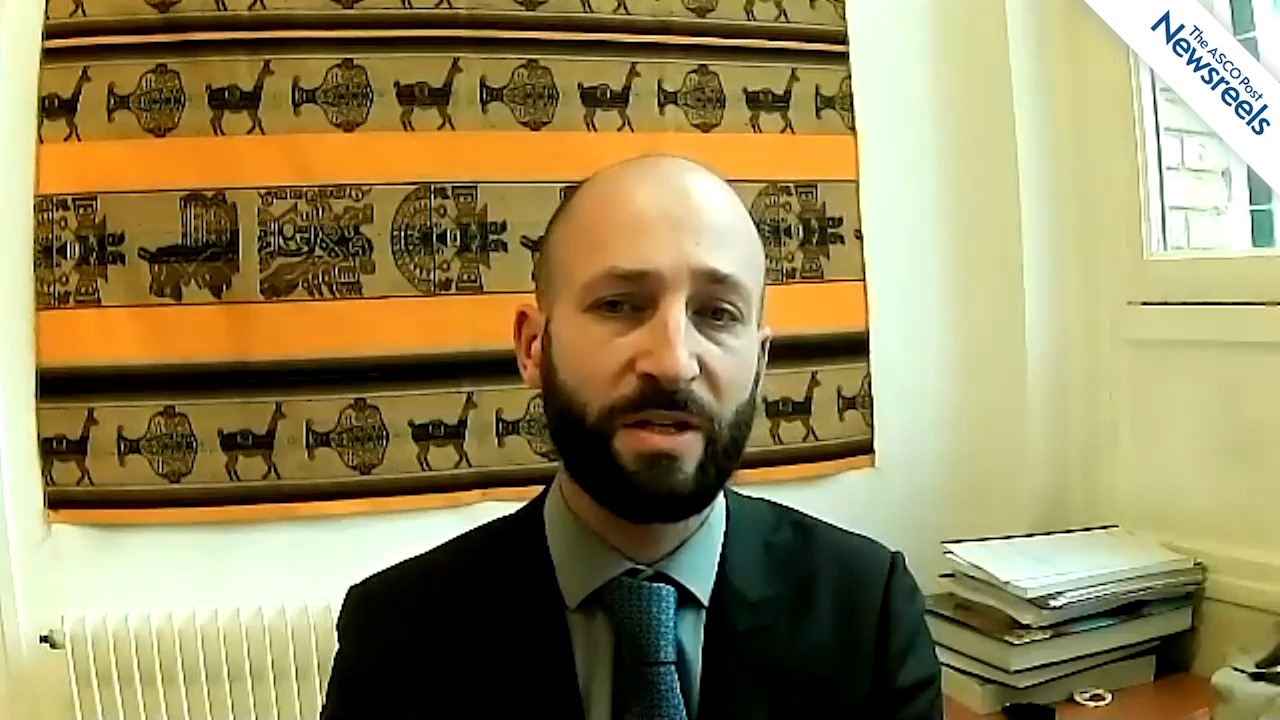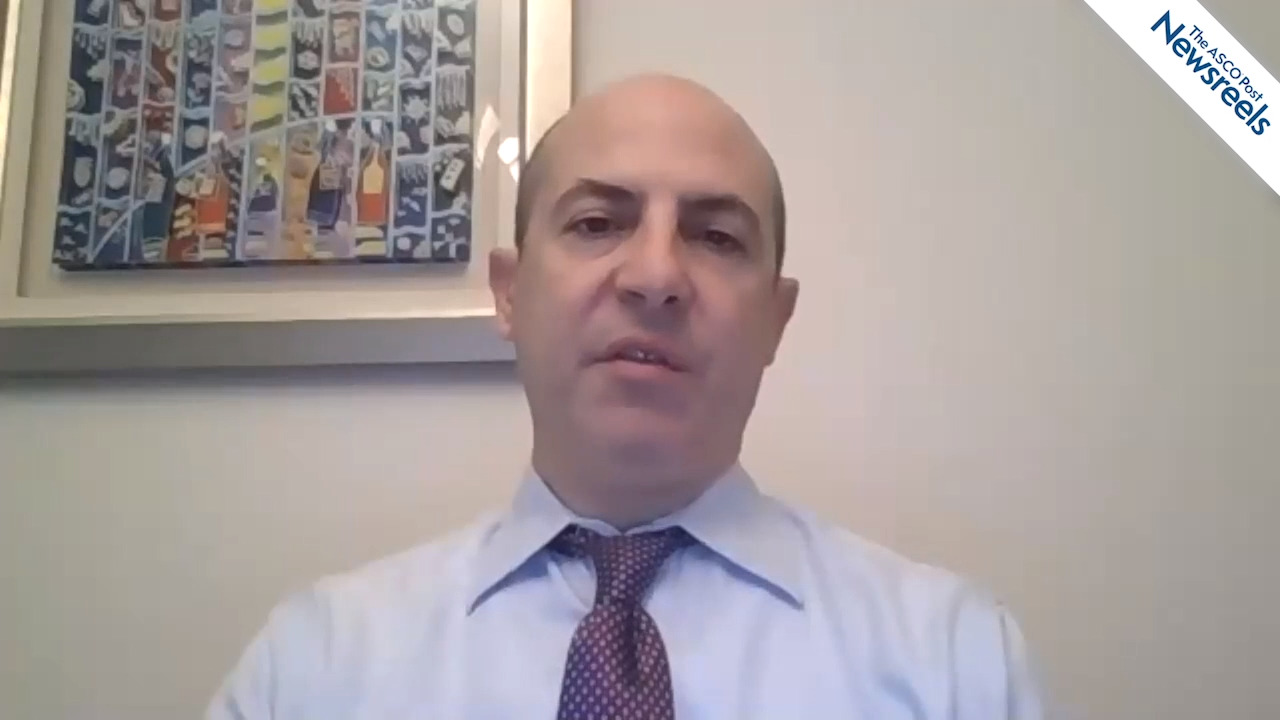Rocio Garcia-Carbonero, MD, on Treating Neuroendocrine Tumors of Nonpancreatic Origin With Octreotide Acetate and Axitinib
2021 Gastrointestinal Cancers Symposium
Rocio Garcia-Carbonero, MD, of Hospital Universitario 12 De Octubre, discusses results of the phase II/III AXINET trial, which showed that axitinib plus long-acting release octreotide improved overall response compared with placebo and octreotide in patients with advanced grade 1 or 2 extrapancreatic neuroendocrine tumors. However, no significant improvement in progression-free survival was observed (Abstract 360).
The ASCO Post Staff
Afsaneh Barzi, MD, PhD, of the City of Hope Comprehensive Cancer Center and the University of Southern California, discusses reasons for the incomplete understanding of the molecular landscape of minority patients with cancer, lack of screening chief among them. This underrepresentation, Dr. Barzi says, is more marked in gastrointestinal malignancies than other solid tumors, and she recommends ways to improve the outlook.
The ASCO Post Staff
Tenna V. Henriksen, PhD Candidate, of Aarhus University, discusses her findings on how circulating tumor DNA may help assess recurrence risk and the benefit of adjuvant therapy, and more quickly detect early relapse after treatment in patients with colorectal cancer (Abstract 11).
The ASCO Post Staff
Thierry André, MD, of Hôpital Saint-Antoine, discusses results from the GARNET study, which showed that dostarlimab, an anti–PD-1 antibody, demonstrated durable antitumor activity in patients with mismatch repair–deficient colorectal and noncolorectal solid tumors. No new safety signals were detected, and most treatment-related adverse events were of a low grade (Abstract 9).
The ASCO Post Staff
Romain Cohen, MD, PhD, of the Mayo Clinic and Sorbonne University, discusses a post-hoc analysis of phase III results from the CALGB/SWOG 80702 study, which showed that adding the number of tumor deposits, a negative prognostic factor, to the count of lymph node metastases may improve the accuracy of TNM staging (Abstract 10).
The ASCO Post Staff
Zev A. Wainberg, MD, of UCLA Medical Center, discusses phase II results from the FIGHT study, which combined bemarituzumab with modified FOLFOX6 in first-line treatment of advanced gastric/gastroesophageal junction adenocarcinoma. This is reportedly the first randomized trial of any FGFR inhibitor, validating this target in gastric cancer (Abstract 160).





